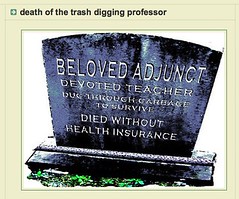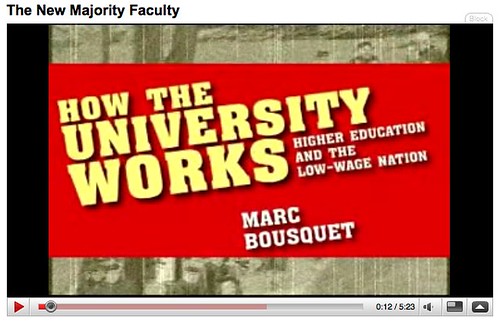In the face of corporate and sports boycotts, Indiana's governor has scrambled to amend their "Religious Freedom" law that is really intended to allow businesses to refuse to serve the LGBT community, and Arkansas's Republican governor has just announced he will boycott a similar bill when it comes to his desk.
This is no small concession for Republicans. Distaste for gays and appeals to the religious right are how they drive their base of voters to the polls, especially when their other policies of endless war and free rein to corporate criminals isn't playing so well.
Public school educators are faced with an ongoing assault on our freedom to teach our students based on our training and experience and are instead being handed a script written by hedge fund managers that conveniently requires that we teach and test and grade using materials that they have invested in and will profit from. And when the test results are declared a sign of failure, rather than investing more tax dollars in lower student-teacher ratios, social workers, and other programs to make the school a success, those same hedge fund managers demand the school be closed and replaced with a for-profit charter school or turned over to a for profit education management company that they will also profit from.
Needless to say, decent pay and job security for teachers would cut into those profits, so we must be reduced to the equivalent of tour guides, mindlessly parroting the script they write for us, rather than thinking on our feet and tailoring our lessons to what works and doesn't with a particular group of students.
Educators are resisting by refusing to administer the tests, and encouraging parents to opt their children out of the tests, but this recent fiasco in Indiana and Arkansas shows we have another, probably even more powerful tool at our disposal: boycott.
Where teachers and administrators have any say in the buying of textbooks, software, and testing materials, they should block the purchase of those sold by backers of the corporate take over of public education. If they can't get around the testing requirements, then fight for open source materials developed by teachers themselves that won't give our tax dollars to those trying to privatize our schools.
While K-12 teachers and administrators might have limited flexibility in these matters, they have a potential ally that has almost unlimited flexibility with choice of materials: colleges and universities, especially those with teachers prep programs.
Many of those schools of education that train future teachers have seem a
dramatic drop in enrollment because students can see the assault on teachers in the mainstream media and deciding not to dedicate their lives to getting a public beating.
Those who teach future teachers and those students who want to be teachers without being Wall Street's whipping boy might be very eager to take action to save their profession.
Likewise, professors and college instructors in other departments might be surprisingly easy to persuade to join in for a number of reasons:
- They know their students are being directly screwed by overpriced textbooks that are randomly rearranged and amended every year or two just enough that students can't use an old edition for their classes.
Many instructors already rely on their own handouts and materials available freely online to do without commercial textbooks. This would simple be an incentive for more to do so.
- Professors and administrators are increasingly aware that the same investor class that wants to divert tax dollars from K-12 education to their own pockets have their eye on public higher education too, and are devising metrics of failure and even trying to close colleges the way they have K-12 schools.
The hedge fund managers, their foundation, and astroturf citizens groups are even trying to drive the same stake into the heart of higher ed that they've already driven into K-12: common core.
- Professors don't want to teach at a McCollege any more than K-12 teachers want to teach at a McSchool.
- The concepts of boycott and divestment are hardly alien to college campuses. In the 80's, college students demanded their schools divest from and boycott apartheid South Africa, and today they are demanding divestment from fossil fuels--and getting it.
And while not all will agree with cause, many are calling for a boycott of and divestment from Israel because of their dealings with Palestinians. It's unsettled the Israeli government enough that they have publicly responded to the movement.
If K-12 and higher ed teachers and administrators realize they face a common enemy they could unite, stop buying these companies products,
demand that their retirement funds and school based foundations divest from them, and give our kids back the chance to get a decent public education WITHOUT Wall Street calling the shots AND taking a skim off our tax dollars spend on education.
Pearson, the company at the heart of Common Core, would be a good place to start.











